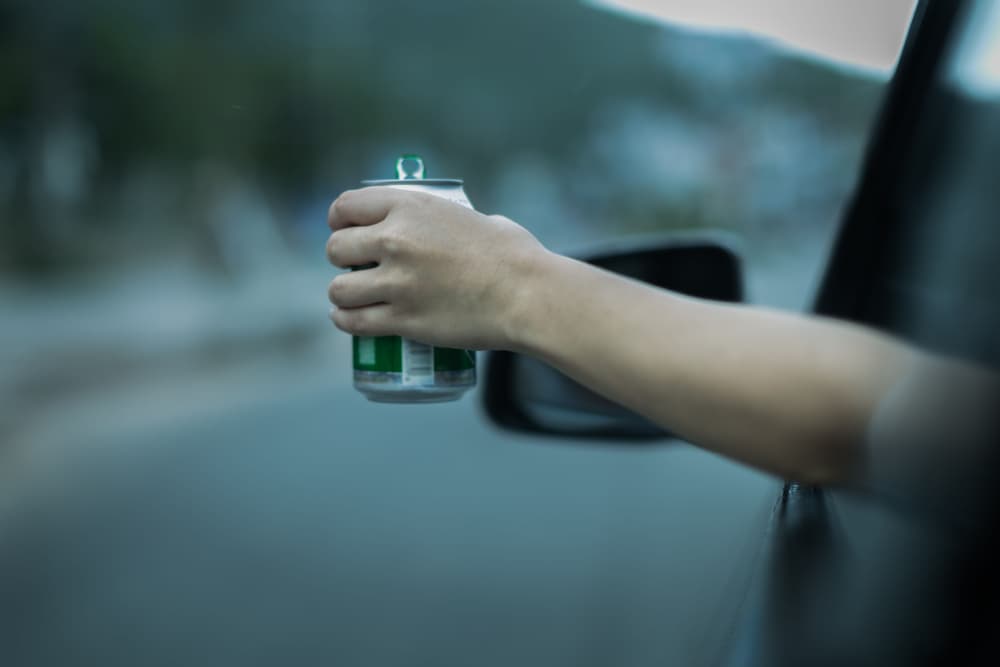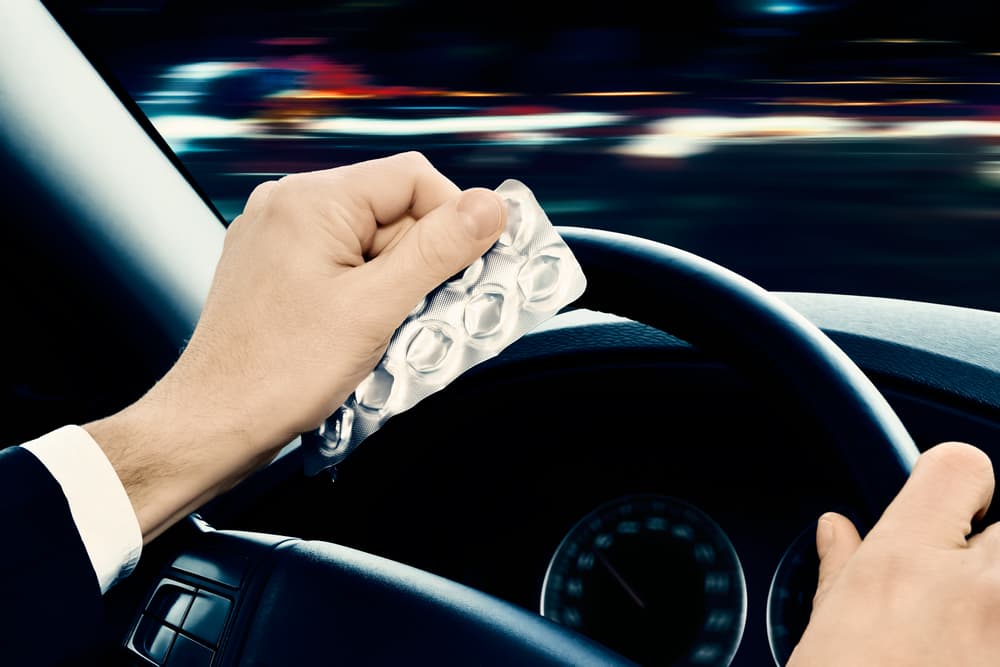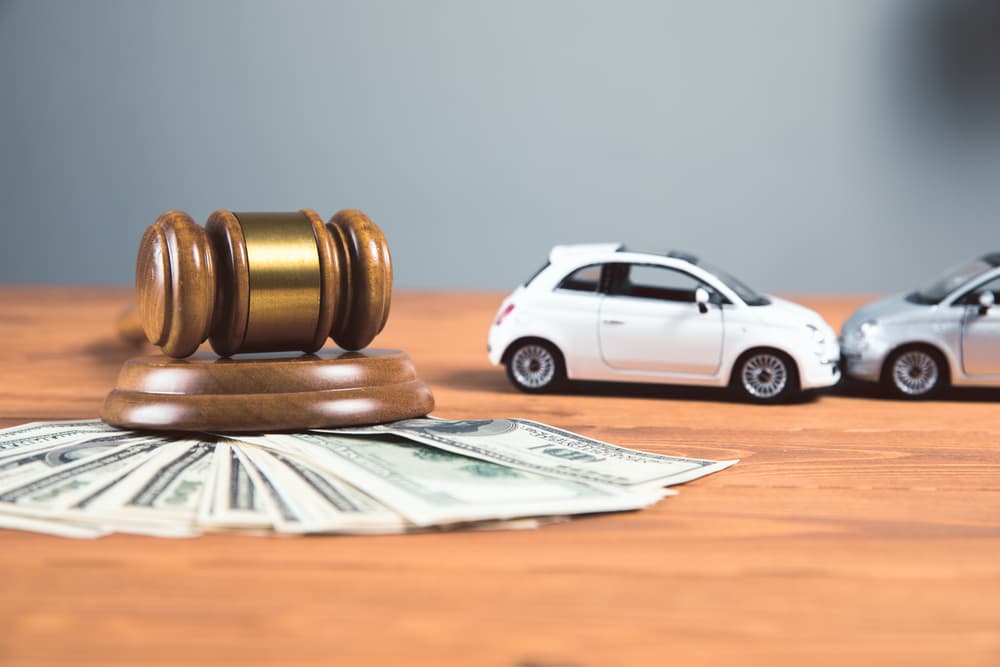Drunk driving is a significant cause of accidents throughout the country, and the problem gets much attention nationwide as authorities run awareness and enforcement campaigns. What gets far less publicity is the issue of impaired driving, when people get behind the wheel after having taken drugs or another controlled substance. In these situations, motorists are every bit as dangerous as drunk drivers. If you have suffered an injury in an accident with an impaired driver, you may deserve substantial financial compensation. First, you need to contact an experienced Vero Beach car accident lawyer who can guide you through the legal process and fight for you to get total payment for your injuries.
It is possible to receive compensation for your injuries, even when the driver is charged with a crime and convicted. The criminal justice process does not act to the exclusion of your legal right to financial reimbursement after a car accident. However, insurance companies will not just give you all the money you deserve and will make it as hard as possible for you to get payment for your injuries.
You should hire a car accident lawyer right after your accident, and you do not need to worry about paying them anything from your own bank account. Your attorney only gets paid from the proceeds of your case if you win by receiving a settlement check or jury award. If you do not hire an attorney, you take a significant risk because insurance companies will likely get away with paying you far less. You can prevent this by having a lawyer by your side. They can act as your advocate, fighting for your rights and ensuring you receive fair compensation for your injuries and damages.
Schedule A Consultation Today!
The Legalization of Marijuana Has Made Impaired Driving More Common

Over the past decade, many states have made marijuana legal. Even in states where cannabis is against the law, the usage of marijuana has steadily increased. As a result, the number of drivers who test positive for marijuana after traffic stops has soared over the past few years.
One recent survey shows that drug-impaired driving is almost as prevalent as drunk driving throughout the United States. This survey showed that over 13 million people drove under the influence of alcohol within the past year. In comparison, just under 12 million people in that same year operated a vehicle under the influence of illicit drugs (including marijuana). The latter total does not include motorists who drove while taking another medication that made them tired. Another study found that nearly one in every five drivers who were under the influence had some type of opioid in their system. Further, one study found that 44 percent of drivers who died in car accidents tested positive for one or more drugs in their system.
Teenagers and Older Drivers Are Impaired More Often
Impaired driving is most common in teenage and older drivers. Teenage drivers and college students are more likely to report using illegal drugs or marijuana. A recent survey of college students found that one in every six admit to driving under the influence of a drug other than alcohol. This study may not even capture accurate numbers because some drivers may not admit to a surveyor that they broke the law.
Senior drivers are more likely to drive under the influence of a prescription medication. Because of their health, they take more medications, and their ability to drive may have already declined because of advancing age. Combined with prescriptions that can make them tired and diminish the attention they pay to the road, seniors end up being far more dangerous drivers.
It Is Hard to Get an Exact Handle on the Number of Impaired Drivers
The number of drugged drivers is likely being underreported, where law enforcement only catches a fraction of drivers who are under the influence of drugs. Unfortunately, no reliable roadside test detects drug use when a police officer stops a driver. Law enforcement needs to obtain a search warrant to draw blood from the driver to get a conclusive test result. In addition, police will first make the driver blow into a Breathalyzer machine. If that reading comes back positive, the officer will likely not test for drugs because they have enough evidence to charge the driver with a crime.
It is also hard to measure the exact number of accidents that are the result of drugged driving. Drugs can stay in the driver's system for days after they take them, even if the driver is not under the influence at the time of the accident, making it difficult to get accurate data.
How Marijuana and Other Controlled Substances Can Affect a Driver
Marijuana is the most common drug that is in driver's systems at the time of an accident. THC is the active ingredient in marijuana and functions as a mind-altering agent. Drivers with this substance in their system are twice as likely to be the cause of a fatal crash as those who do not.
Chemical or controlled substances can affect a driver every bit as much as alcohol. For example, a driver who ingests marijuana before they get behind the wheel will experience several effects. For starters, marijuana can impair a driver's reflexes, making them slower to respond to any challenges they encounter. In addition, marijuana can alter how a driver perceives distance and can also cause them to pay less attention to the road since they cannot focus.
Other types of controlled substances can act as stimulants, perhaps having the opposite effect on the driver. For example, a driver can take a stimulant to treat ADHD, which can cause them to act riskier. Adderall, which is a common drug used to treat ADHD, can result in slower reaction times because the medication can cause dizziness. Drivers can take stimulant medications, either legally with a prescription or illegally.
Legal Prescription Medications Can Impair Drivers

Drug-impaired driving does not just refer to getting behind the wheel after taking illegal substances. People can take legally prescribed drugs but still be in the wrong because certain medications can make them drowsy and take away their focus from the road. For example, a driver may take a prescribed narcotic painkiller that makes them very tired. They are legally taking a controlled substance, but taking it before they drive is illegal. The same goes for any other medication that can make a driver sluggish.
Similarly, the fact that a drug may now be legal under certain circumstances also does not mean that a driver can take it before they drive. Cannabis is becoming legal in many states, either entirely or for medicinal purposes, but drivers still cannot operate a motor vehicle when they are high.
Impaired Driving Is Also Illegal
Under state law, any kind of impaired driving is illegal, and not just that which is caused by alcohol. For example, the law in Florida prohibits driving under the influence (DUI) of alcoholic beverages, chemical substances, or controlled substances. Having a blood alcohol content of .08 or over is just one way that a driver is impaired. If an officer deems them to be under the influence because they took a chemical or controlled substance, the driver can still be breaking the law.
The Responsible Driver Must Pay in an Impaired Driving Accident
Suppose you have suffered an injury in an accident with an impaired driver. In that case, you may be eligible for substantial financial compensation when you demonstrate they were to blame for the accident. However, the fact that the driver was impaired does not automatically make them liable in a civil car accident lawsuit. Further, the civil lawsuit process is independent of the criminal case that the driver may be facing. You will still need proof that the driver was to blame for the accident beyond evidence of their condition during the crash.
If an officer apprehended the other driver, there may be evidence that can support your civil case. For example, law enforcement may have administered a blood test under a lawful search warrant after an arrest. Although police will not simply give you those test results, your lawyer may obtain them from police or the lab that conducted them through a court subpoena.
You Have a Lower Standard of Proof in a Civil Impaired Driving Case
Further, different standards apply to criminal and civil cases. In a criminal case, the prosecutor will need to prove that the driver was impaired, and they will need to demonstrate that to a jury beyond a reasonable doubt. In a civil case, your lawyer must prove that the other driver was responsible for the accident by a preponderance of the evidence. Again, you may not need to show that the driver was impaired, although it can be solid proof for your civil case. If, for some reason, the court finds the driver not guilty in a criminal case, there is still room for you to win your civil case.
You Need an Attorney for Any Civil Car Accident Lawsuit
Insurance companies often do not want to fight claimants who have suffered an injury by an impaired driver. They may still try to underpay your claim, but they may not contest liability. Still, you will need an experienced car accident lawyer to handle your case. There is a wide range of outcomes regarding the amount of compensation, and insurance companies may try to catch you unaware of the value of your case when you do not have a lawyer. They can make a quick and very low settlement offer to get you to sign away your rights for pennies on the dollar. When you hire a car accident lawyer, a safeguard is in place to prevent that.
Your Compensation in an Impaired Driving Case

In any car accident case, you can get the following in compensation:
- Medical expenses
- Lost income
- Property damage
- Pain and suffering
- Scarring and disfigurement
- Emotional distress
- Loss of enjoyment of life
- Anxiety and depression
Insurance companies may make you an offer to settle the case, but they do not determine how much you can receive. Only a jury has the right to make any binding judgment. If the insurance company has not offered you enough money, you can reject the offer and continue negotiating. You can also sue the responsible driver in court. Either way, you need to know your claim's worth and fight the insurance company for as long as it takes to get your money.
How a Car Accident Lawyer Helps Your Case
Your car accident lawyer can help your case by doing the following:
- Investigating your accident and gathering evidence that can prove the other driver was liable
- Reviewing your own personal situation to determine how much you may be due in damages
- Filing a claim with the driver's insurance company or a lawsuit against them in court
- Negotiating compensation on your behalf in a settlement agreement
- Litigating your case in court if you cannot reach a settlement agreement
Do not think your car accident case is clear-cut, even if there is evidence that the driver was impaired. You may be unable to introduce evidence of a conviction, and the driver may not plead guilty if they know they have potential liability in a civil lawsuit. Always hire an attorney because they can get top dollar for your claim.
A lawyer can guide you through the legal process and help you understand your rights and options. They can explain the applicable laws in your jurisdiction, advise you on the best course of action, and handle all the necessary paperwork and documentation. Having a knowledgeable attorney by your side can alleviate the stress and confusion often associated with accident cases.
Hiring a personal injury attorney for your accident case can significantly increase your chances of obtaining a favorable outcome. They can handle the legal complexities, advocate for your rights, and ensure you receive the compensation you deserve. Don't hesitate to seek professional legal representation to protect your interests and navigate the legal system effectively.
